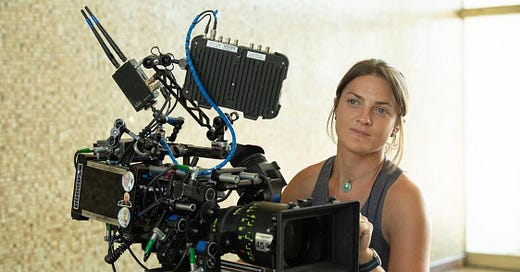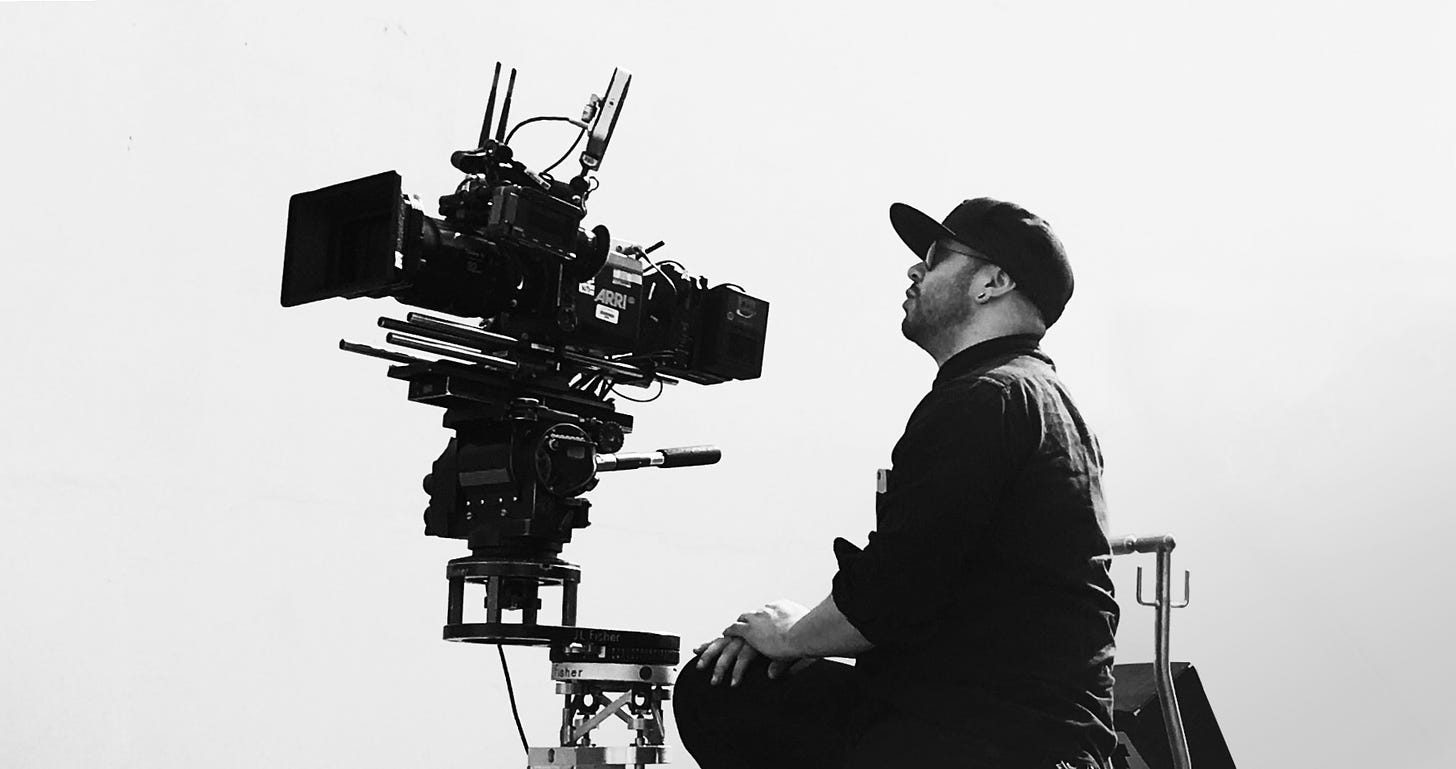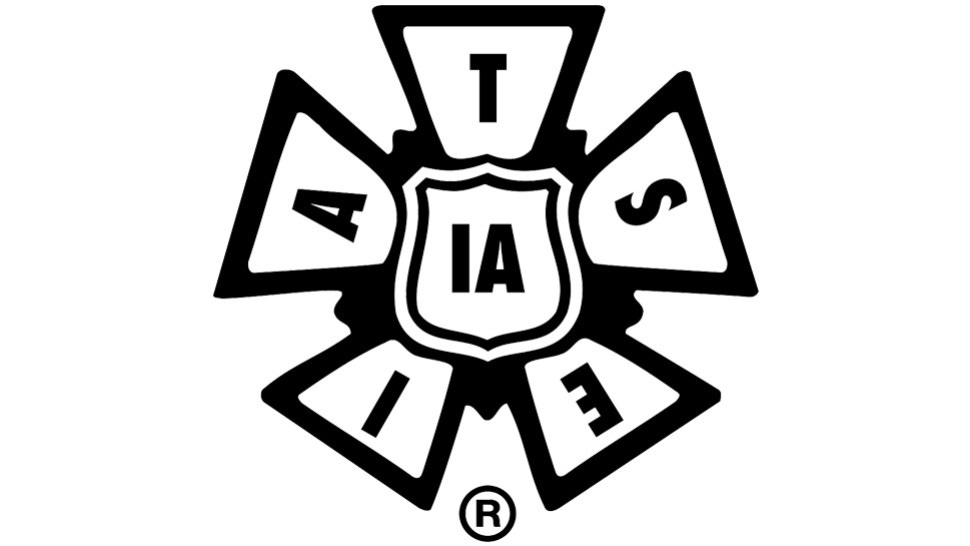'This Is Film Industry Culture'
This piece by journalist Eoin Higgins was originally co-published by The Flashpoint. The Flashpoint, like Discourse Blog, is part of the Discontents media collective. To subscribe to The Flashpoint, please click here.
by Eoin Higgins for The Flashpoint
The death of cinematographer Halyna Hutchins on the set of the film Rust was the culmination of decades-long, systemic issues relating to mistreatment, overwork, and cost-cutting.
“This is film industry culture,” Kira Murdock, a first assistant cameraman with ties to the Rust crew, told me.
Filming on the New Mexico set was halted after lead actor Alec Baldwin, also a producer on the movie, unwittingly discharged a prop gun with a live round in it and killed Hutchins. Director Joel Souza was injured.
“No one wants to be on the show”
Murdock, who regularly works with the crew that worked on Rust, declined an opportunity to join the production.
“I passed on this project when Halyna offered it to me because it is a low-budget project, which is often riddled with endless issues to do with treatment and safety of the crew,” she said.
Zack Grace, a second assistant cameraman in New Mexico, also passed on working on the film.
“People that I know that have been working on the job that have reached out to me because no one wants to be on the show,” Grace told me.
The dissatisfaction culminated in almost all members of the camera crew walking off the set over poor conditions and a lack of safety just hours before Hutchins was shot and killed.
Plagued with problems
Staff on the production had been dealing with issues relating to safety and fatigue on set since the beginning of the month.
Shooting began on Oct. 6 and members of the production said they had been promised the production would pay for their hotel rooms in Santa Fe.
But after filming began, the crews were told they instead would be required to make the 50-mile drive from Albuquerque each day, rather than stay overnight in nearby Santa Fe.
Travel is a pervasive problem on New Mexico sets. Bobbie Shelton, a background actor in New Mexico who was not on the set of Rust, said that the state’s vast size makes it attractive to filmmakers—but also makes commuting to filming locations an added burden.
Out-of-state productions “do not have a clear understanding and give little thought about the logistics, they are all about the location,” Shelton said.
“Crew is there hours before filming begins and additional hours of shutting the same set down,” Shelton told me. “If a set shoots for 12 hours you can generally add an hour or more to the work day [for travel].”
Catastrophe
Baldwin was assured the gun was “cold,” or free of live rounds, when he was handed the weapon by Rust assistant director Dave Halls. The gun, which had already misfired at least twice on set, contained at least one live round, making Hutchins’s death a catastrophic failure on a number of levels.
Commentators have noted Baldwin’s responsibility as a producer on the film, but the title usually doesn’t transfer to any real added responsibility, said Eric Branco.
“In my experience, these credits are vanity credits,” Branco said. “They are financial incentives to gain a larger name to come onto your smaller project.”
Nonetheless, Branco said, as a star actor, Baldwin had a responsibility to take seriously the complaints from crew members, including those who walked off the job.
“Nonstop mentality”
The film industry regularly prioritizes speed and cost over safety and cultivates a culture where objecting to that pace is highly discouraged.
Shortly after the details of the Rust set’s labor strife became known, an April 2020 video of actor Bob Odenkirk talking about conditions on the set of his New Mexico-shot AMC show Better Call Saul went viral. In the clip, Odenkirk describes being asked over and over to “force a call,” or agree to a tight turnaround, in a way that he didn’t feel was really “asking.”
“It got to the point where I said, ‘Can I say no?’ and this person looked at me and said, ‘I think the crew would really appreciate that,’” Odenkirk told host Michael Rosenbaum.
That atomization of crew, actors and set workers, is par for the course, Branco told me, as is dispersal of responsibility.
“Coming from the top is this nonstop mentality of rush, rush, rush to be more productive, be faster,” Branco said. “And I think you aren’t even aware that you have a voice to say ‘no.’”
Higher-ups use familiar language to foster a sense of unity on set, telling crew that they’re “family.” But that goes out the window when you speak up about conditions.
“Suddenly we are no longer a family,” Branco said. “Suddenly, it’s, ‘Why are you trying to sabotage this movie?’”
“Cumulative effect”
Hutchins’s death came as members of the International Alliance of Theatrical Stage Employees (IATSE) are in negotiations over a new contract.
Workers in the film industry have warned about the dangers on set for years, Branco said, but they’ve largely been ignored. Now, with the backdrop of labor unrest, people in leadership in the film industry are trying to frame the shooting as “an isolated incident regarding gun safety.”
“I don't think that the powers that be understand that this is a cumulative effect—when you haven't slept for days on end, weeks on end, months on end, bad decisions get made,” Branco said. “Your decision making becomes impaired and it becomes harder to recognize an unsafe situation.”
Earlier this month, IATSE members voted in favor of a strike, which was set for October 18. The action was averted on October 16 when a new contract was negotiated. But the contract is expected to be voted down as insufficient by workers in an industry that are sick of being treated as disposable.
“Crew members are finally starting to feel like they have a voice and a right to their personal safety,” Murdock said. “The timing of Halyna's death couldn't be more poignant.”
A previous version of this post claimed that camera crew members staged a walkout from the Rust set. The action was not organized to such an extent as “staging a walkout” so language has been changed to reflect that.







